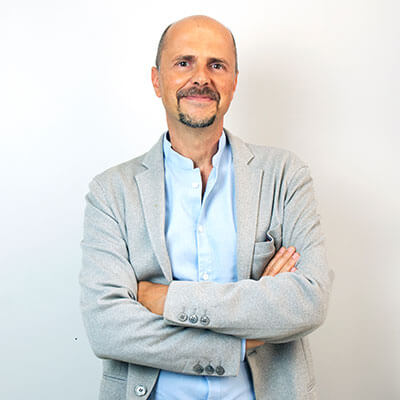It is no longer a mystery how much smart working has revolutionized the way of working, or rather of conceiving work performance. And if we can be productive from anywhere, why not do it from a magical place?
It is precisely on this premise that the new trend of Workation is based, a neologism born from the fusion of two English terms "work" and "vacation" .
Workation heralds the increase in the number of people who will book leisure stays over the next 2 years while carrying out their work responsibilities remotely or during the same business trip.
But when does Workation become advantageous for the company and the worker? And what is the role of the travel manager ? We and Travel For Business - the business travel, mobility and sharing economy magazine - have tried to find the answers to these questions thanks to research carried out among users of the Travel For Business community.
The data emerging from the Workation research: an overview
By Riccardo Gabriele Ricci, sales manager for Business Travel
70% agree that doing Workation is more environmentally sustainable . While on a personal level, the research highlights that working with this form allows you to achieve a greater balance between work and private life (74%).
However, there is a poor perception of how it contributes to reducing CO2 emissions and how to solve the problem of the lack of socialization between colleagues . Instead, they opt for the choice of digital tools (26%) that would facilitate or increase socialization with remote colleagues, requiring the implementation of platforms such as web-meetings (24%) or new virtual systems (15%).
But let's analyze the answers provided by the interviewees in detail:
What immediately catches the eye is the 70% of interviewees who consider Workation to be more environmentally sustainable.
It is rightly thought that the mere fact of not traveling to work by car, the means chosen by 84% of Italians, significantly reduces CO2 emissions, but no thought is given to the pollution produced by the worker during a day of work; heating 100 homes is certainly more energy intensive than heating an office with 100 people.
For this reason, structures suitable for welcoming workers and families in Work must be developed in the area ; they will have to be designed from a green perspective and provide a certification of the carbon footprint produced by each worker which the companies will then have to include in the sustainability balance sheet.
I made this clarification because I wouldn't want anyone to think that a worker outside the company doesn't produce CO2 and therefore thanks to Workation or Smartworking we will magically find ourselves living in the city without pollution.
Now let's analyze the positive effects of Workation : finding the right balance between work and private life is certainly appreciated by the majority of those interviewed; then the increase in presence in rural areas and small villages to lead a more human-scale life; Among the positive effects, the reduction in CO2 still returns (perceived, I underline, but not real) and in fourth place is the increase in corporate social responsibility.
Here I would focus: corporate social responsibility. During the Geco 2021 round table, for those who followed me, I mentioned the famous United Nations SDGs, the Goals for Sustainable Development.
Do Workation could contribute to many of those 17 goals:
-
- Objective 1: put an end to all forms of poverty and therefore inclusive economic growth with the aim of creating sustainable jobs.
- Objective 3: Health and well-being and this point seems to me to be largely satisfied by Workation.
- Objective 4: Fair and inclusive quality education, and this is one of those requirements that small villages and rural areas will have to take care of very well in order to allow working families to continue their children's studies.
- Objective 7: clean and accessible but, I would add, local energy. Did you know that 10% of electricity is wasted just for transport?
- Objective 8: decent work and economic growth, a goal fully achieved by Workation.
- Objective 10: reduce inequalities within and between nations
- Objective 11: sustainable cities and communities, this is also a goal fully achieved by Workation
- Objective 12: ensure sustainable production and consumption models. Local communities will have to make a strong contribution, therefore they will have to be far-sighted and understand that investments made in infrastructure and sustainable energy sources, access to basic services and respect for the environment, can translate into benefits and riches for the territory.
- Objective 13: fight against climate change
- Objective 15: protect, restore and promote sustainable use of the ecosystem, also fully achieved.
If we put all these advantages on the scales we have a WIN WIN strategy, we win together, we all win ; the workers and their families win, the companies win, the territory wins and we begin that path of sustainable growth which is made up of many small steps to be taken all together.
On the topic of Socialization the differences are more homogeneous, no answer clearly prevails over the others , this actually hides something that the interviewees know well, namely that remote working does not facilitate socialization with colleagues. An employee in London knows this very well, who runs to the pub with his colleagues every Friday at 5pm to have a beer, but we Italians who appreciate being together know this very well. 11% think that the Metaverse will help us , but I honestly don't think so, it would be a contradiction to settle in a small village to re-taste a human dimension of life and then socialize with colleagues via a digital device.
The last question of the research asked how important it is to share the Workation experience with the family and here everyone's affirmative answer seems very clear but obviously such a radical choice cannot be made without involving the family.
The real challenge will be how local communities, in collaboration with companies, will be able to develop infrastructures capable of attracting workers to Workation . Therefore, create that added value that would make everyone win, the villages undergoing depopulation, the companies, the workers and their families. A difficult balance to achieve but which would have a strong impact on the local economy and which would see Italy as the most attractive nation in the world for Workation.
In summary: with this research we wanted to explore the positive sides and critical issues of Workation and we are convinced that many reflections and reasons for comparison will arise from it ; we hope to be able to grasp all the positive sides of this revolution and improve the many unknowns that currently exist.

RICCARDO GABRIELE RICCI
Sales Manager for Business Travel at Alma Travel

